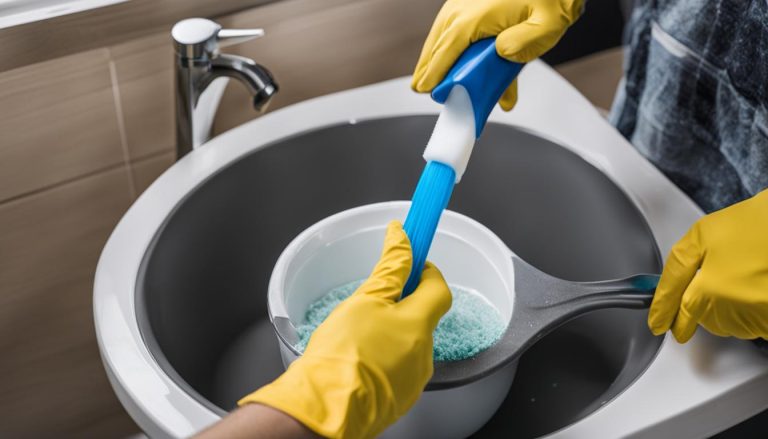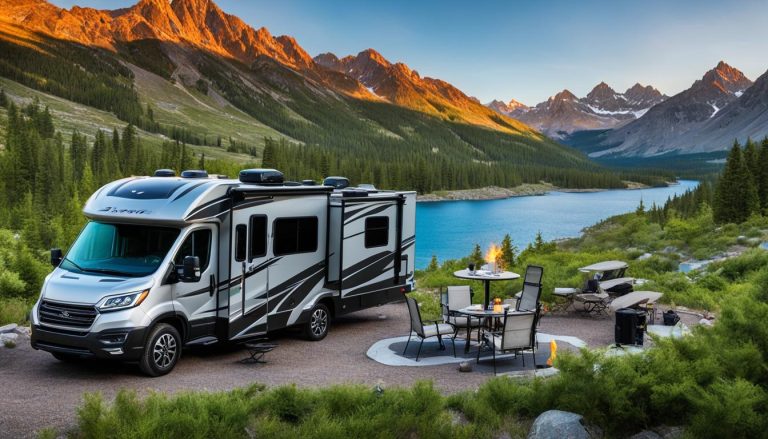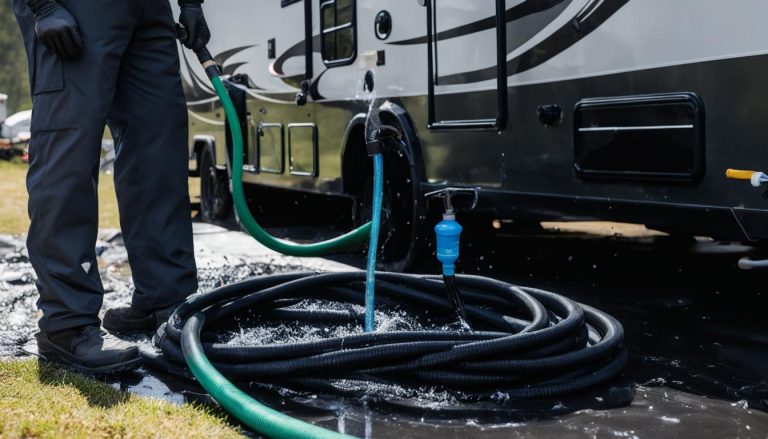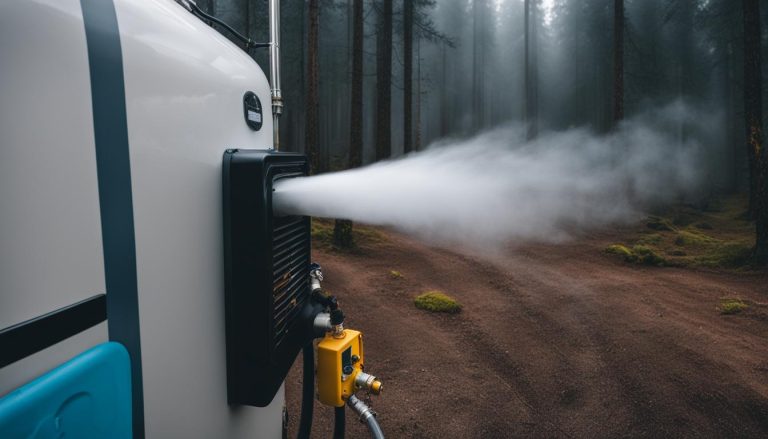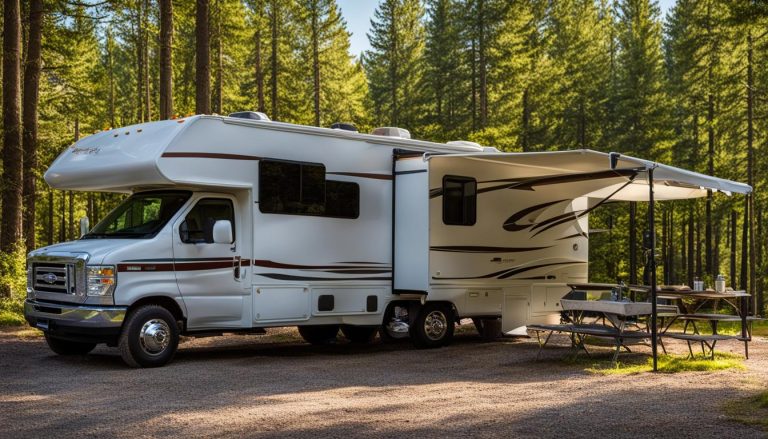Keep Mice Out of Your RV: Simple Steps & Tips
gorvlifestyle.com and its partners may earn a commission if you purchase a product through one of our links
Are you tired of dealing with pesky mice in your RV? Don’t let these rodents ruin your travels and damage your vehicle. By taking a few simple steps and implementing effective prevention methods, you can keep mice out of your RV and enjoy a rodent-free camping experience.
Key Takeaways:
- Thoroughly inspect and seal any potential entry points in your RV to prevent mice from entering.
- Use natural deterrents like peppermint oil-soaked cotton balls or dryer sheets to repel mice.
- Consider using electronic repellents that emit frequencies unpleasant to mice for added protection.
- Maintain a clean and mouse-proof RV by storing food properly and regularly cleaning up.
- Regularly inspect your RV for signs of mouse presence and take immediate action if needed.
Understanding the Mouse Problem
Mice are known to target campers due to the warm and safe environment they provide, as well as the abundance of food and shelter. They can easily find their way into your RV, posing a threat to your belongings and potentially causing costly damage.
It’s important to be able to identify the signs of a mouse infestation to take immediate action. These signs include:
- Droppings: Finding small, dark droppings, typically about the size of a rice grain, is a clear indication of a mouse presence.
- Gnaw marks: Check for gnaw marks on food packages, wires, insulation, or any other chewed materials.
- Strange noises: Pay attention to any unusual scratching, squeaking, or scampering sounds coming from the walls, ceiling, or floor.
By understanding why mice target campers and being aware of the signs of their presence, you can take the necessary steps to prevent infestations and protect your RV from these unwanted guests.
Implementing effective preventative measures is crucial to keeping mice at bay. In the next section, we’ll discuss how you can inspect and seal your RV camper to prevent mice from gaining entry.
Inspecting and Sealing Your RV Camper
One of the most effective ways to keep mice out of your RV is to thoroughly inspect and seal any potential entry points. Mice can squeeze through even the smallest holes, so it is crucial to examine both the exterior and interior of your camper for gaps, cracks, and openings. By sealing these entry points using materials like spray foam, caulk, or steel wool, you can create a strong barrier against mice and prevent them from entering your RV.
Start by inspecting the exterior of your RV. Pay close attention to areas where different materials meet, such as where the siding meets the frame or where pipes and wires enter the vehicle. Look for any signs of gaps or openings that could allow mice to enter. Use caulk or spray foam to seal these areas, ensuring a tight seal.
Next, move to the interior of your RV and conduct a thorough inspection. Check for gaps around windows, doors, vents, and any other openings. Use weatherstripping or foam tape to seal these gaps, preventing mice from finding their way inside.
When inspecting the interior, also pay attention to areas where pipes and wires enter the RV. These areas are often overlooked but can serve as potential entry points for mice. Seal them using steel wool or a combination of caulk and spray foam.
Remember, mice can be persistent, so it’s important to be thorough in your inspection and sealing process. By taking these proactive measures, you can significantly reduce the risk of a mouse infestation in your RV.
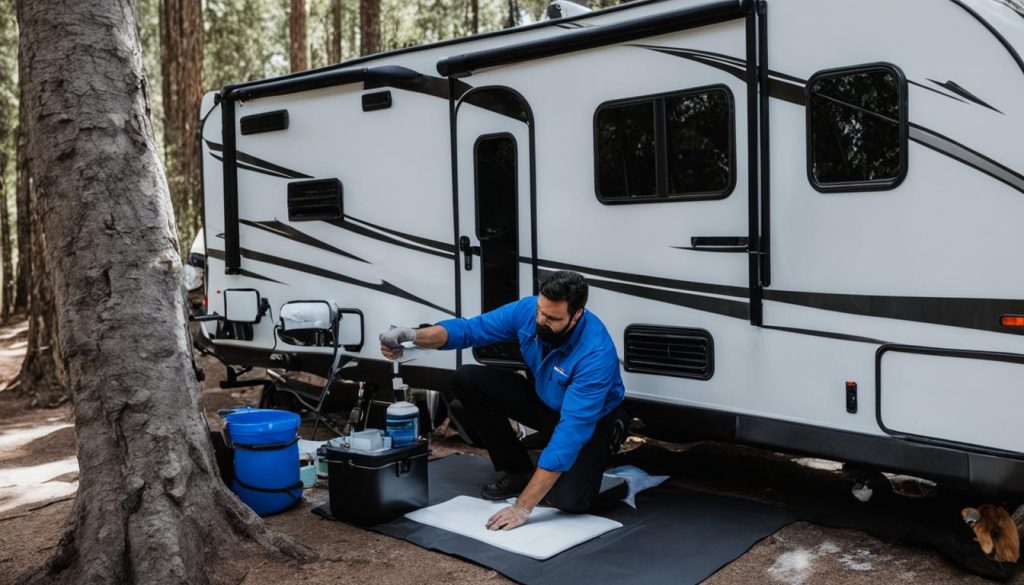
Creating a strong barrier against mice starts with inspecting both the exterior and interior of your RV camper. By identifying and sealing potential entry points, such as gaps, cracks, and openings, you can effectively keep mice out and protect your RV from potential damage and infestations.
Deterrents and Repellents
In addition to inspecting and sealing your RV, using deterrents and repellents can further help in keeping mice at bay. Natural deterrents, such as peppermint oil-soaked cotton balls or dryer sheets, can be effective in repelling mice. Electronic repellents, such as plug-in devices that emit frequencies unpleasant to mice, can also be used as a deterrent.
By employing a combination of these methods, you can create a multi-layered defense against mice infestations.
| Natural Deterrents | Electronic Repellents | |
|---|---|---|
| Peppermint oil-soaked cotton balls | Plug-in devices that emit frequencies unpleasant to mice | |
| Dryer sheets |
Maintaining a Clean and Mouse-Proof RV
Maintaining a clean and mouse-proof RV is crucial in preventing mice from entering your recreational vehicle and causing damage. By following a few simple food storage tips and implementing regular cleaning and maintenance practices, you can minimize the risk of attracting mice and ensure a pleasant camping experience.
To minimize the risk of attracting mice, store dry food in airtight containers. This will not only prevent spills and food debris, but it will also make it less likely for mice to detect and access your food. Additionally, it is important to remove all food from your camper when it is not in use. This includes emptying the refrigerator and pantry to eliminate any potential food sources that may attract mice.
Regular cleaning and maintenance play a crucial role in deterring mice from your RV. Promptly clean up any food debris or spills to avoid creating an enticing environment for mice. Inspect your camper regularly for signs of mice presence, such as droppings or chew marks. By catching any signs early on, you can take immediate action to prevent a full-blown infestation.
By following these food storage tips, as well as practicing regular cleaning and maintenance, you can create a less attractive environment for mice and discourage them from entering your RV. This will help ensure that your camping experience is free from the frustrations and damages caused by mice infestations.
FAQ
How can I keep mice out of my RV?
To keep mice out of your RV, you can follow several simple steps and tips. Thoroughly inspect and seal any potential entry points, such as gaps and cracks, both on the exterior and interior of your camper. Use natural deterrents like peppermint oil-soaked cotton balls or dryer sheets, or electronic repellents, to discourage mice from entering. Maintain a clean and mouse-proof RV by proper food storage and regular cleaning and maintenance.
Why do mice target campers?
Mice are attracted to campers due to the warm and safe environment they provide, as well as the abundance of food and shelter. Understanding this attraction can help in implementing effective prevention methods to keep them away.
What are the signs of a mouse infestation in an RV?
Signs of a mouse infestation in an RV include droppings, gnaw marks, and strange noises. It is important to recognize these signs to take appropriate preventative measures.
How should I inspect and seal potential entry points in my RV?
When inspecting and sealing potential entry points in your RV, thoroughly examine both the exterior and interior for gaps, cracks, and openings. Seal these entry points using materials like spray foam, caulk, or steel wool to create a strong barrier against mice.
What are some natural deterrents and repellents that can keep mice away from my RV?
Natural deterrents like peppermint oil-soaked cotton balls or dryer sheets can be effective in repelling mice. Electronic repellents, such as plug-in devices that emit frequencies unpleasant to mice, can also be used as a deterrent.
How can I maintain a clean and mouse-proof RV?
To maintain a clean and mouse-proof RV, store dry food in airtight containers and remove all food when storing the camper. Regularly clean up food debris or spills and inspect the camper for signs of mice presence to deter them and keep your living environment clean.

